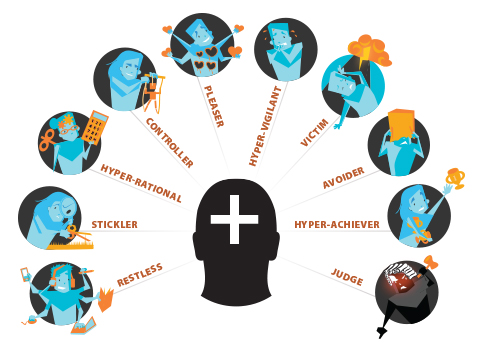Positive Intelligence is a term coined by Shirzad Chamine and is the title of his…

Self-Awareness is Other Awareness
“Self-awareness becomes other awareness when we realize the broader impact of our behavior.”
Everyday we encounter people who could use a dose of self-awareness. If we are honest with ourselves, we will admit we could all use improved self-awareness. It’s the path that has no end and yet if we look back, we can see how far we’ve come. The question is, does all of this self-reflection make us selfish? Or does it make us other-focused?
When we take the time to appraise ourselves, we are really making ourselves easier to work and live with. Imagine a co-worker who is always late and knows it but doesn’t change his behavior. This co-worker has a low level of self-awareness even though he can verbalize his shortcoming.
In previous articles, I have outlined the levels of self-awareness that lead to meaningful change. They include:
- You have little or no self-awareness.
- You have received either formal or informal feedback and you can verbalize it. “Yes, I am always late.”
- You can see how your behavior has resulted in a certain outcome.
- You can not only see the outcome but you begin to see why it matters.
- You care that it matters. This step is a big jump because you have to check your ego and open yourself up to real change.
- You become motivated to make this change a top priority.
- You formulate goals and strategies to make the necessary adjustments.
I also want to add that there is also a flip side to this self-awareness equation. Maybe you don’t know you have certain strengths that could have an impact on a situation. In this case, the prevailing limitation might be fear. Fear can be just as powerful as ego or self-defense when standing in the way of change.
Self-awareness becomes other awareness when we realize the broader impact of our behavior. Here are but a few examples of the ways we can increase self-awareness:
- Personality assessments: These can jumpstart the process. What are your natural strengths and blind spots? The key here is to not only affirm what is an asset for you but to challenge you to address what is a struggle.
- Emotional intelligence assessments: These can help you find a pathway toward leveraging your personality and accounting for blind spots.
- 360 Feedback tools: These can help you see how others see you.
- Polarity exercises: These help us broaden our awareness around alternative perspectives and behavioral choices.
- Coaching: A coach can help us tie it all together, set meaningful goals, and help us come up with strategies to reach those goals.
According to the Harvard Business Review (October 2015), we really are not very self-aware, especially at work. It may be that we feel we are too busy or that it is a waste of time. Perhaps we are waiting for a performance review to do the work for us. However, I would submit that when we do the work, we can control the process. When we approach change proactively rather than reactively, we can not only continue the self-awareness journey (You can’t unsee what you truly saw!), you can decide what to do with that information.





[…] I have written in previous articles, self-awareness has several levels. If you skim along the surface of self-awareness, you are not likely to get the […]